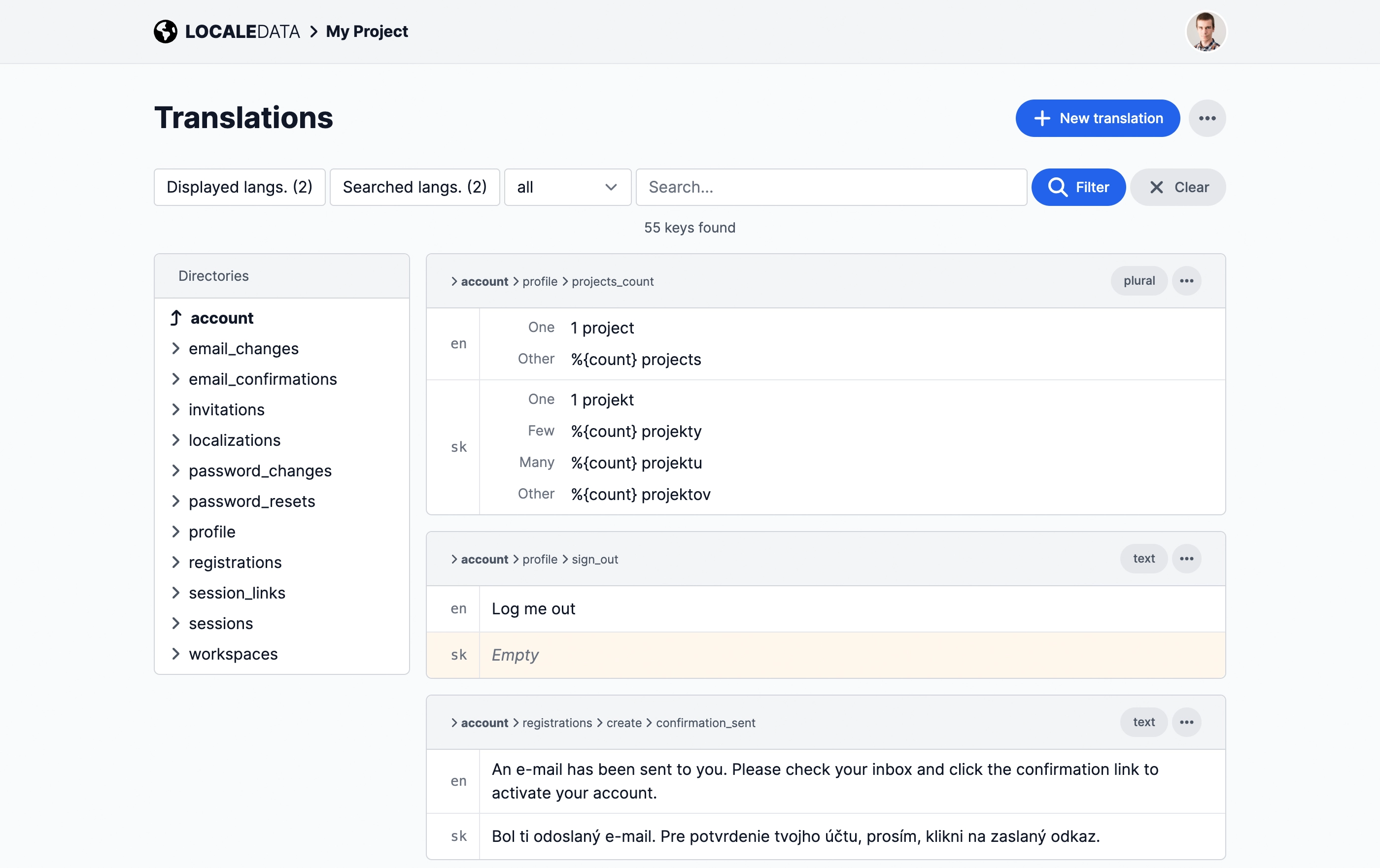
LocaleData provides a number of translation types: text, plural, boolean, integer, float, array, symbol, null. When you are importing new translations from a YAML file, the type is automatically set from the provided data. You can always change the type of individual translations through the web interface. A correctly set translation type will also ensure the correct data format on export.
Translations are grouped into directories in the web interface. That is a metaphor in LocaleData to describe
individual parts of the translation key path separated by dots. For example, in the translation path
activerecord.attributes.user.name, the translation keyname is located
in the directories activerecord, attributes and user.
The web interface allows you to search and filter the displayed translations. You can search for a translation path or a content of a translation. You can also filter only complete or incomplete translations, or set the languages you are currently interested in:
- Displayed languages - the languages you want to see
- Searched languages - the languages you want the filter or the search to apply to
For example, if you want to translate incomplete German translations in your project, you can set the filter to incomplete translations, set German as the searched language and set English and German as the displayed languages. In this way, the interface will show you all the incomplete German translations with the corresponding English versions.
Individual translations are automatically marked as complete or incomplete, but you can always override this flag. Keeping this information up to date can help you track your translation progress and better manage your translations.